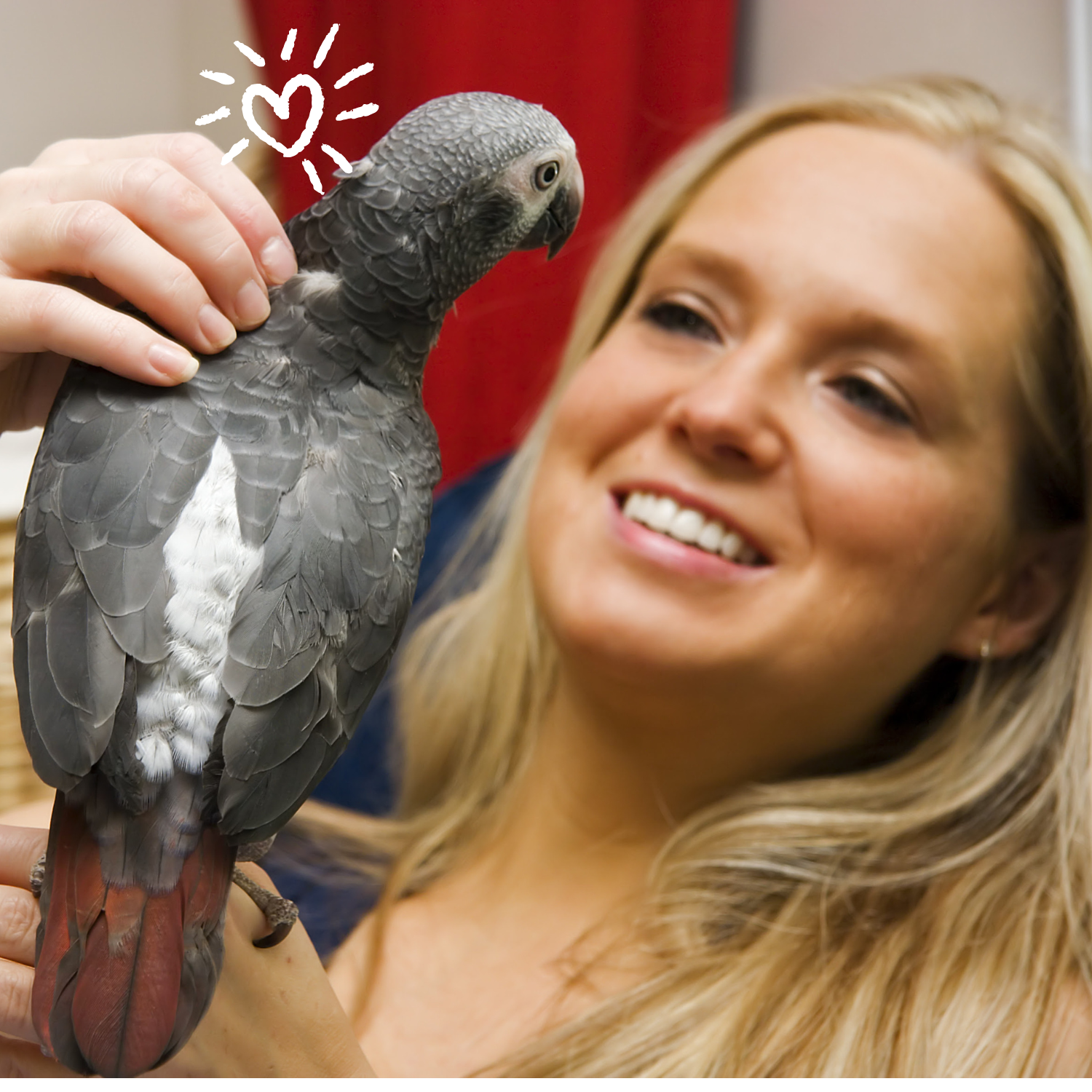Ultimate Bird Care Guide: From Selection to Advanced Care
- Choosing Your First Bird
- Preparing To Bring Your Bird Home
- Bringing Your Bird Home
- Foundational Care Practices That Every Bird Parent Needs To Know
- Advanced Nutritional Planning
- Understanding and Interpreting Bird Body Language
- Bird Training for Beginners
- Comprehensive Bird Care for Beginners: Key Takeaways
- Test Your Knowledge
Welcome to our easy-to-follow guide on bird care! We're here to help you learn everything you need to make sure your feathered friend is happy and healthy. Sometimes, figuring out the best way to take care of your bird can be tricky, especially if you're new to bird parenting. There are a lot of myths out there, some even spread by pet stores, that can make things confusing. In this guide, we’ll clear up those myths and give you solid, expert advice on everything from picking your first bird to learning advanced care tips. Whether you’re just starting out or you want to get even better at caring for your bird, you’ll find all you need right here to create a great life for your pet.
Choosing Your First Bird
Meeting Your Bird's Needs: A Guide to Making the Best Choice
Birds bond deeply with their owners and rely on you for their well-being. Choosing one isn’t just about what you want—it’s about what’s best for them too. They can be part of your family for many years, so it’s a serious commitment.
However, that said, before bringing a bird into your life, it’s important to consider how well their needs align with your lifestyle, both now and in the future. Birds are incredible companions, but they come with specific traits that might not suit everyone. Here are six key factors to think about before welcoming a feathered friend into your home:
Choosing the Right Bird for Your Lifestyle
Before bringing a bird into your life, it’s important to consider how well their needs align with your lifestyle, both now and in the future. Birds are incredible companions, but they come with specific traits that might not suit everyone. Here are six key factors to think about before welcoming a feathered friend into your home:
1. Noise Tolerance
While all parrots can be loud, some are louder than others. Birds like cockatoos or macaws are notorious for their booming calls, while smaller birds like budgies or canaries tend to be quieter. It's important to know how much noise you (and your neighbors) can handle.
How much noise can you handle?
1 2 3 4 5
2. Mess Tolerance
Birds can be surprisingly messy! From flinging food to shedding feathers, you’ll need to keep up with cleaning their cage and surrounding area daily. Some species are more prone to creating messes than others, so be prepared for the daily upkeep.
Are you prepared to handle this level of mess?
1 2 3 4 5
3. Time Commitment
Birds need plenty of mental stimulation, attention, and social interaction. Especially if you’re considering a parrot, plan to spend time every day training, playing, and interacting with your feathered friend.
Do you have the time to give your bird the attention they need?
1 2 3 4 5
4. Financial Commitment
Birds, especially larger species, require an investment beyond just the cost of a cage. Annual wellness checks with an avian vet can easily run $500 or more. On top of that, you’ll need to budget for toys, food, and potential medical emergencies.
Are you financially prepared for long-term bird care?
1 2 3 4 5
5. Diet and Care Routine
Birds need a balanced diet, often including a mix of pellets, seeds, fresh fruits, and vegetables. Daily care also includes fresh water, clean cages, and lots of enrichment to keep them mentally stimulated. Birds are not “set it and forget it” pets!
Are you ready for the daily dedication to feeding and care?
1 2 3 4 5
6. Access to an Avian or Exotics Vet
Not all veterinarians are trained to treat birds. You’ll need to ensure there’s an avian or exotics vet nearby, as traveling long distances for vet care can be stressful for your bird.
How far is the nearest avian or exotics vet from your location?
Over 2 hours
1-2 hours
45 minutes to 1 hour
30-45 minutes
15 minutes or less
Scoring Your Results
Now that you’ve rated yourself on these key areas, let’s tally your score!
Related Posts:
11 Essential Tips to Bird-Proof Your Home
How To Choose The Best Bird Cage for Your Pet
Bird Safety Alert: 15 Everyday Items That Can Poison Birds!
How to Prepare a Bird First Aid Kit
Choosing a Bird Stand for Your Parrot
6 Unexpected Reasons You Need A Bird Carrier
Monitoring Your Bird's Weight
Daily, Weekly, Monthly Bird Care Routines
6 Bird Enrichment Tips to Keep Your Bird Happy
How To Tell If Your Bird Is In Pain & What To Do About It
References:
https://feistyfeathers.com/2017/08/31/bringing-home-baby/https://zupreem.com/5-steps-to-successfully-bringing-a-new-bird-home/
https://lafeber.com/pet-birds/new-bird-5-ways-to-get-off-to-a-great-start/
https://www.petassure.com/new-newsletters/top-10-dangers-to-pet-birds/
https://www.exoticpetvet.net/avian/topten.html
https://www.merckvetmanual.com/bird-owners/disorders-and-diseases-of-birds/injuries-and-accidents-of-pet-birds
https://mickaboo.org/resources/reading-bird-body-language
Link to this blog
Share this comprehensive guide with fellow bird enthusiasts!
Diane Burroughs, LCSW, is a licensed psychotherapist specializing in avian anxiety disorders, nervous bird behaviors, and overall bird care. With training in ABA therapy and certification in Nutrition For Mental Health, Diane has authored several books on bird behavior and offers expert consultations for resolving issues like feather plucking and bird anxiety.
TAGS: #ParrotCare #BirdCare #BirdParent
SHARING IS CARING! 📣
Love what you read? Help spread the word on Facebook & Instagram 🌟
💬 Leave a comment below and let us know your thoughts!














